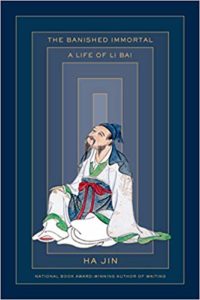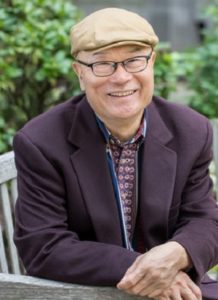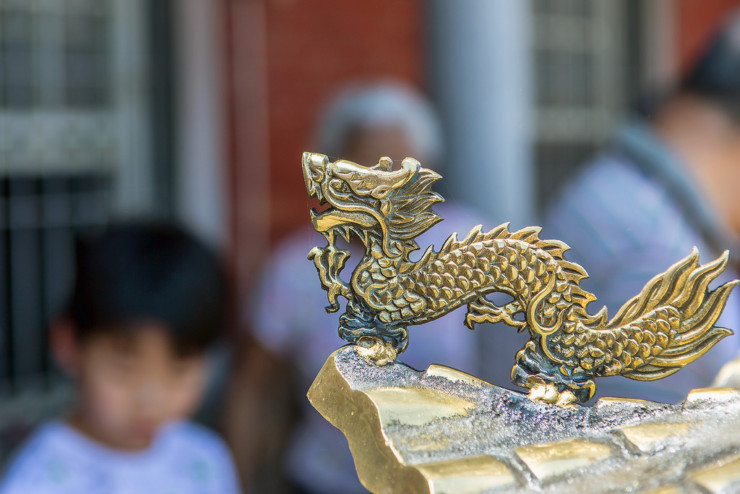A Life of Li Bai
In college, I was part of the first two classes in Chinese history, courtesy of Henry Kissinger, Richard Nixon and their recognition of the People’s Republic of China. Interest in all things Chinese had surged, and my university offered the history classes. As a senior, I had rank to get into them.
What surprised me was how much we learned, not only about history, but about Chinese literature. The reason was that to know the country’s history, you had to know the country’s literature. And my history class was the first place I learned about the poet considered the greatest in Chinese history, Li Po, or, as he came to be known after the Anglicized Chinese was changed, Li Bai.
Li Bai lived from 701 to 762 A.D. during the Tang dynasty, when China was already an ancient society. An indication of his longstanding popularity, which survived dynastic change, wars, and revolutions, is that Mao Zedong loved his poetry and Li Bai’s poems are still recited by Chinese schoolchildren today.

It’s a stunning work. Using what few biographical sources that exist and Li Bai’s poetry, Ha Jin has crafted a masterful, highly readable account that brings the poet to vivid life. That’s quite an accomplishment for the biography of a man who lived 1,300 years ago.
Born in a western province, Li Bai faced what every poet in China faced for millennia: to get ahead, you have to work for the government. To work for the government, you had to take the qualifying literary examinations. If you came from a lower-class family or the distant provinces, you were not going to be allowed to take the examinations. Your alternative was to find a high-enough government figure who could promote you and help you find a government position.
The account is meticulous and thorough. The author follows Li Bai through the 61 years of his life: his father’s determination that this son would become a poet and government official; his wanderings across China (and Li Bai was nothing if not a wanderer); his repeated and frustrated attempts to gain an official post; his swordsmanship talents; his engagement with Daoism (most court poets followed Confucianism); and more.
Li Bai was so good and so recognized as original (he didn’t write the formalized court poetry that all educated poets wrote) that he evoked jealousy regularly. Original talent felt threatening, and he was blocked, ignored, privately ridiculed, and lied about for most of his adult life. For a short time, he worked as a poet in the emperor’s academy, but jealousy and his tendency to drink too much led to an end. He did not labor and sweat over his verses; instead, they seemed to flow out of the man effortlessly, like this drinking song still sung in China today:
The fine wine of Lanling gives off a fragrance—
Held in a jade bowl, it shines with amber light.
So long as the host can make me drunk,
I’ll have no idea where my hometown is.

Ha Jin
He survived because of his friends and the people who loved his poetry. He was becoming well known even in his lifetime, but “well known” didn’t equate to “financially successful.” When he died, his grave was almost literally lost in the weeds until a monument was built in his honor.
A native of China, Ha Jin is the author of eight novels, four poetry collections, four short story collections, and a collection of essays. He’s received the National Book Award, two PEN/Faulkner awards, the PEN/Hemingway Foundation Award, the Asian American Literary Award, and the Flannery O’Connor Award for Short Fiction. He’s a member of the American Academy of Arts and Letters and teaches in the creative writing program at Boston University.
The Banished Immortal is a remarkable account of a remarkable poet. It is the story of a man’s life, largely drawn from the poems he wrote. And it tells what is still an exciting story.
Photo by Saebaryo, Creative Commons, via Flickr. Post by Glynn Young
__________________________

“I require all our incoming poetry students—in the MFA I direct—to buy and read this book.”
—Jeanetta Calhoun Mish
- Poets and Poems: Katie Kalisz and “Flu Season” - April 15, 2025
- Poets and Poems: Michelle Ortega and “When You Ask Me, Why Paris?” - April 10, 2025
- Robert Waldron Imagines the Creation of “The Hound of Heaven” - April 8, 2025

Leave a Reply